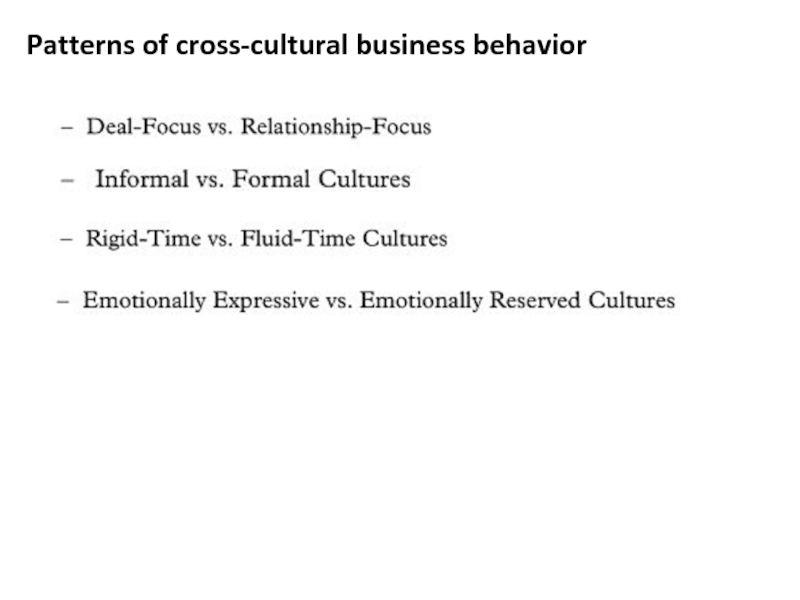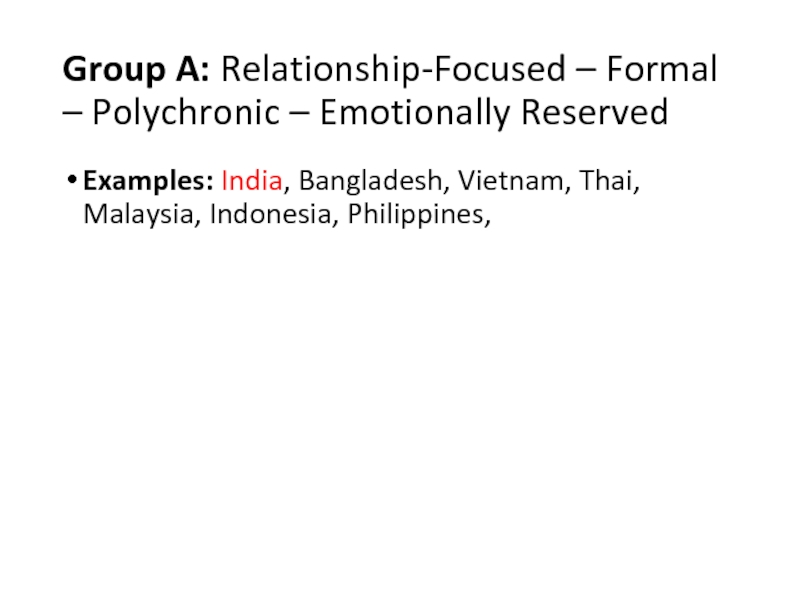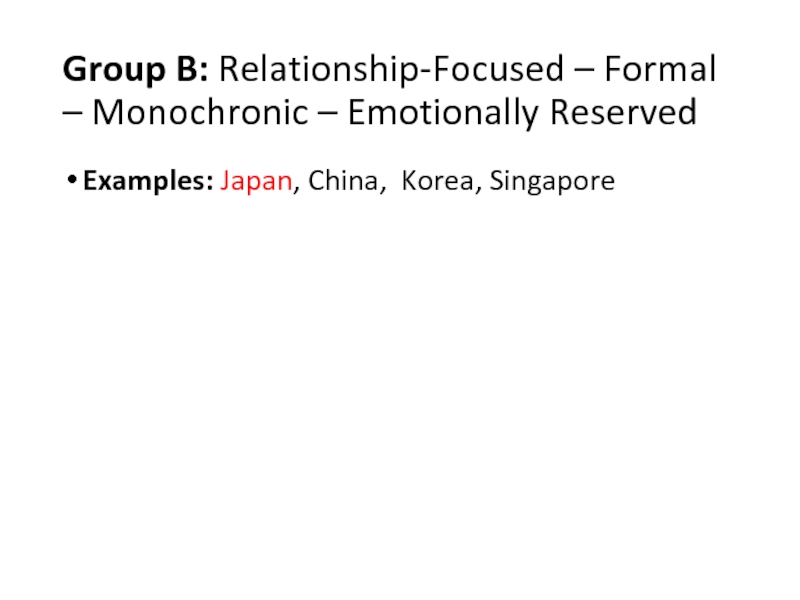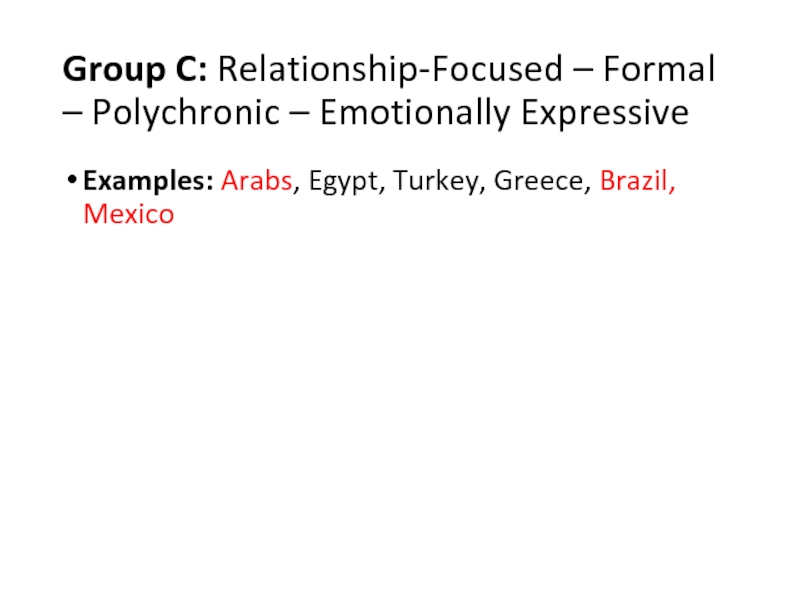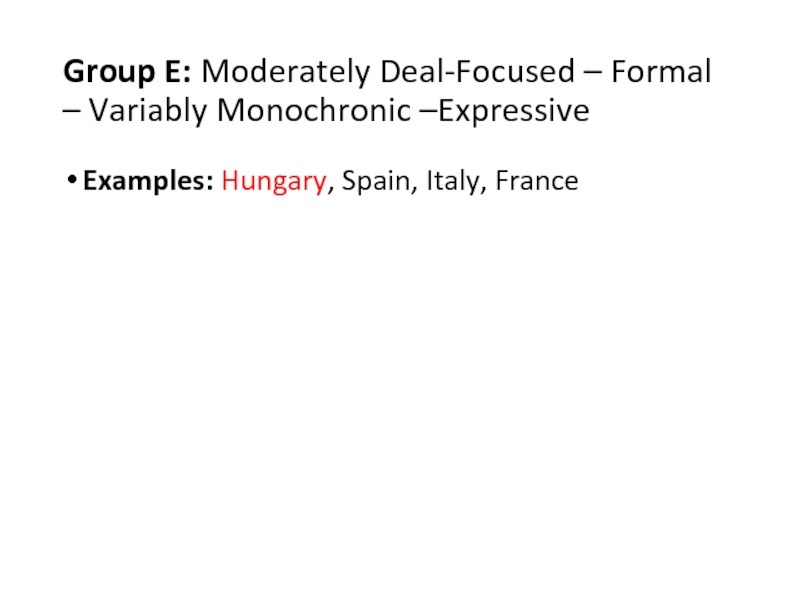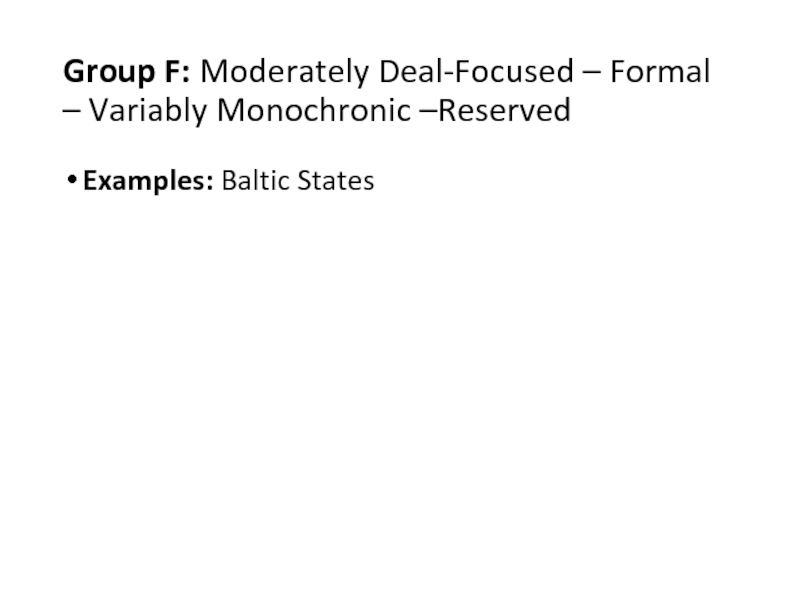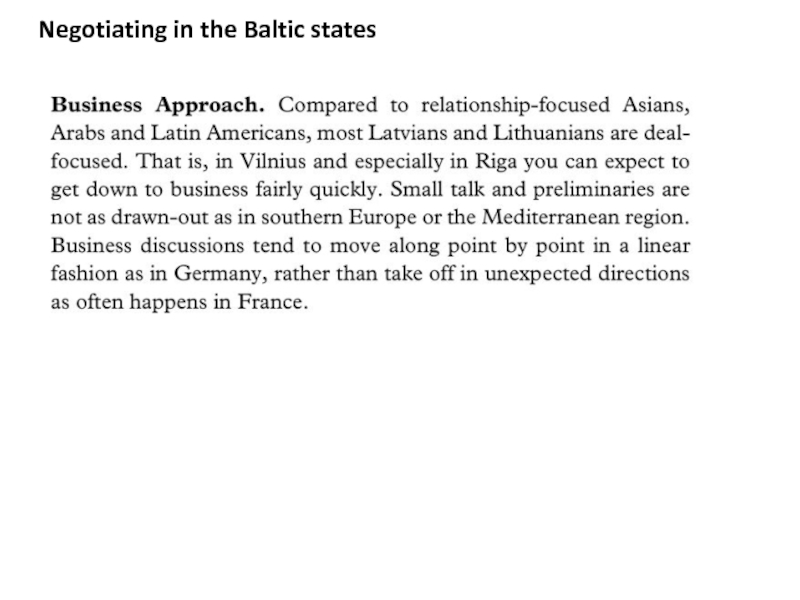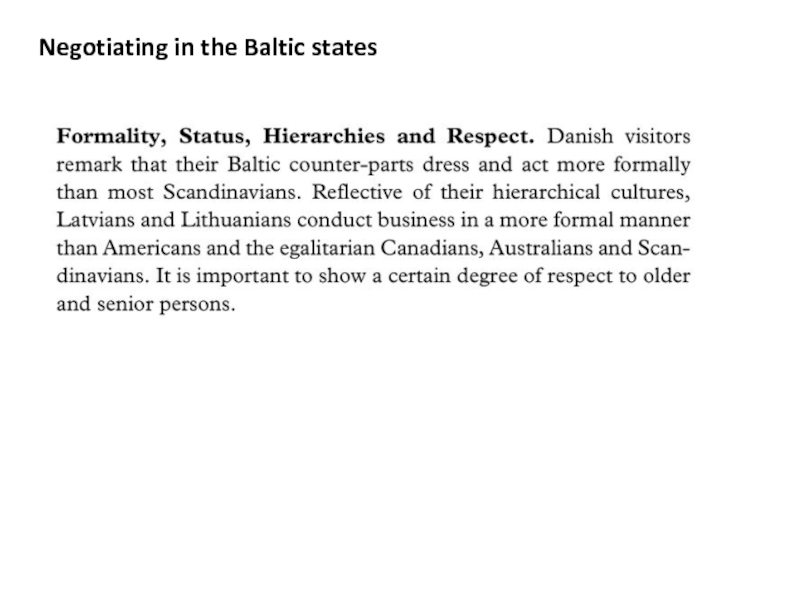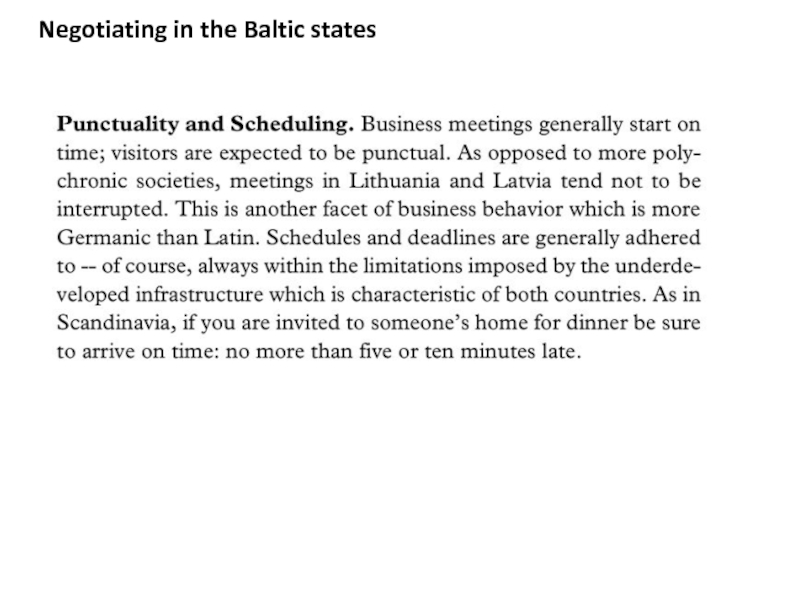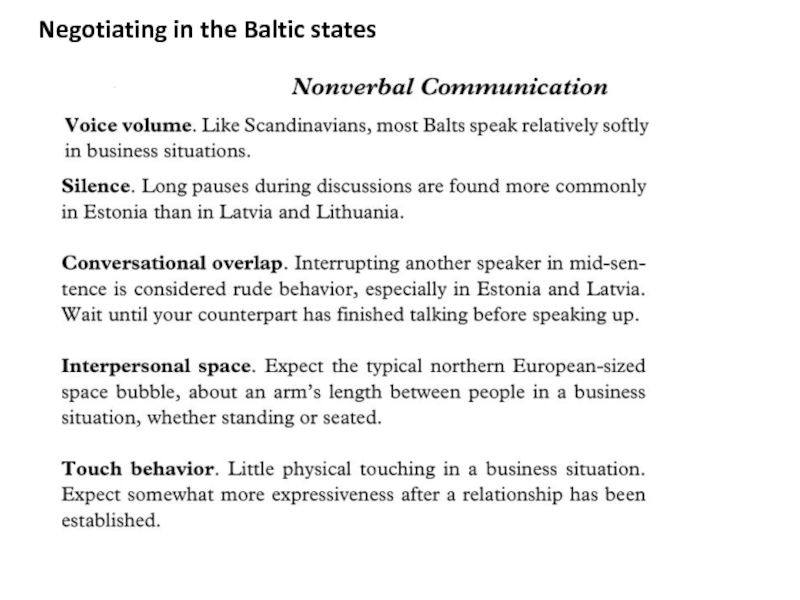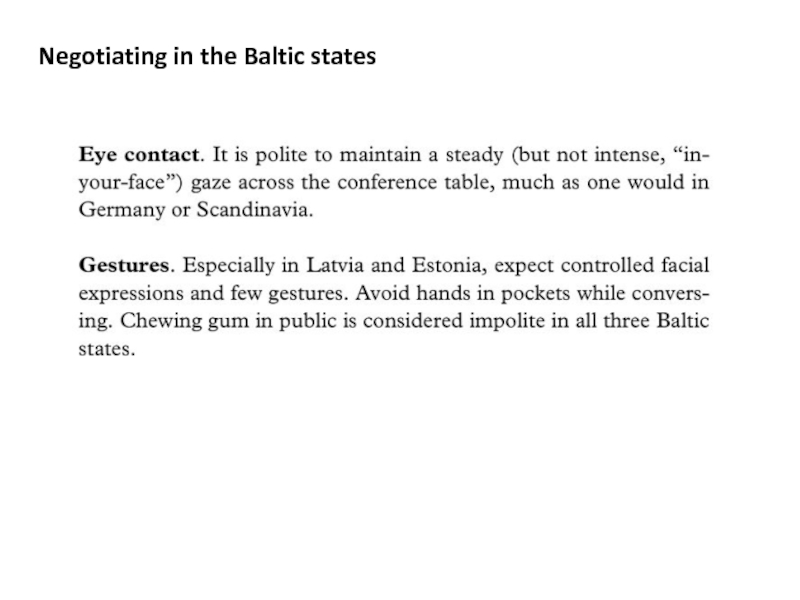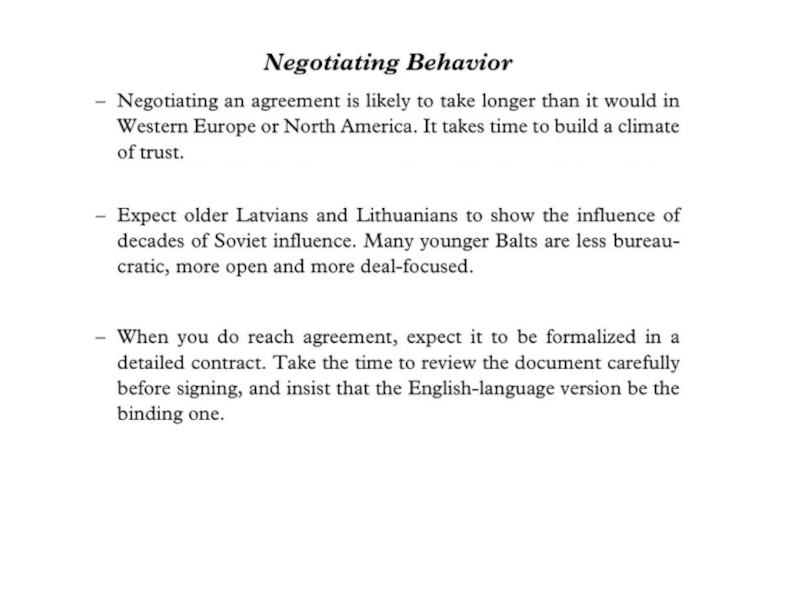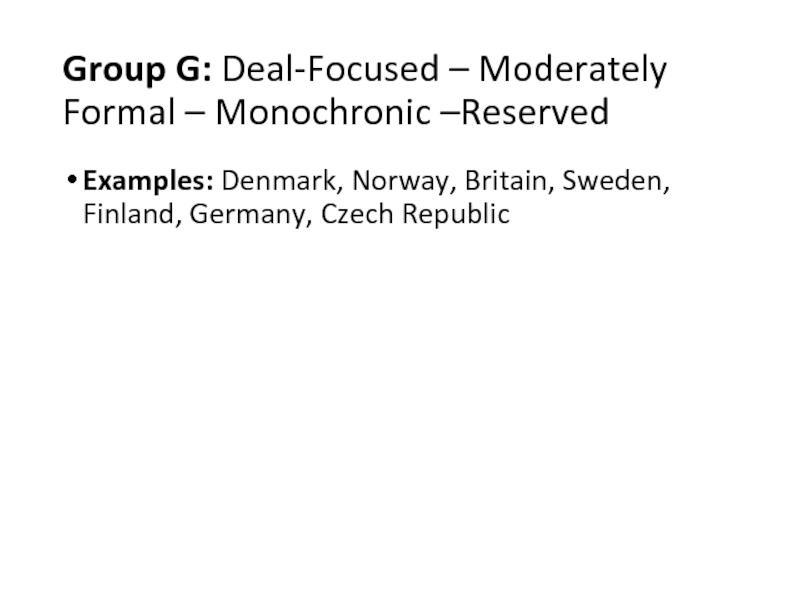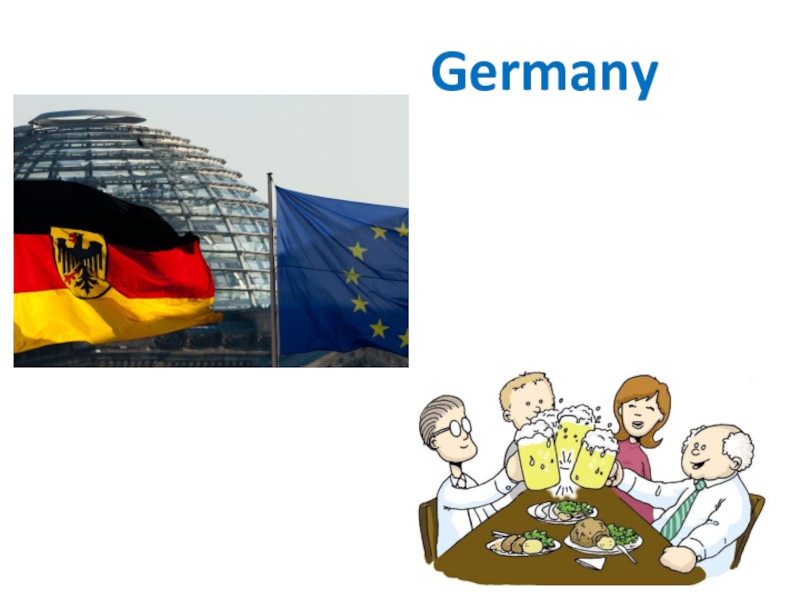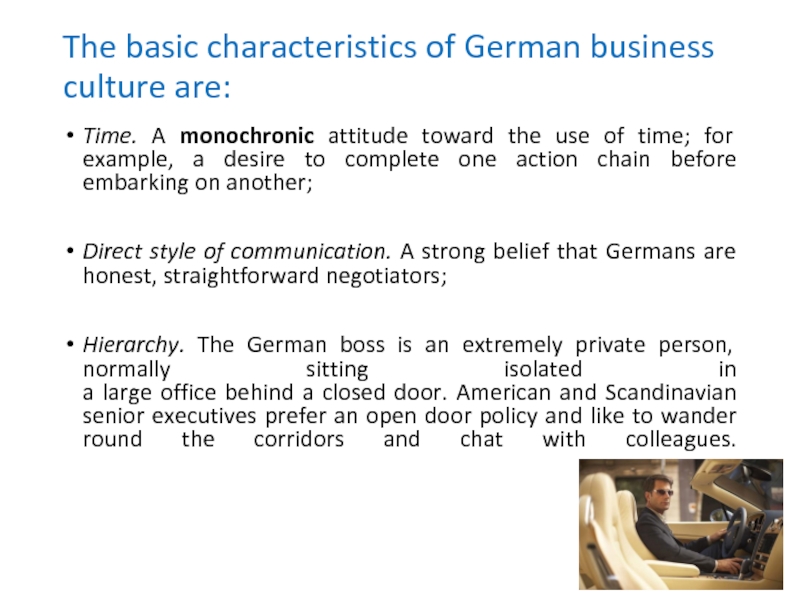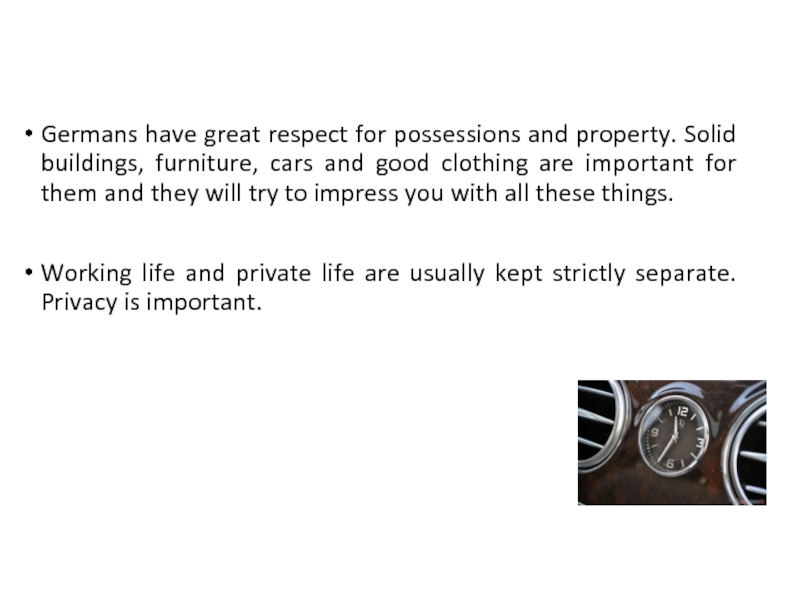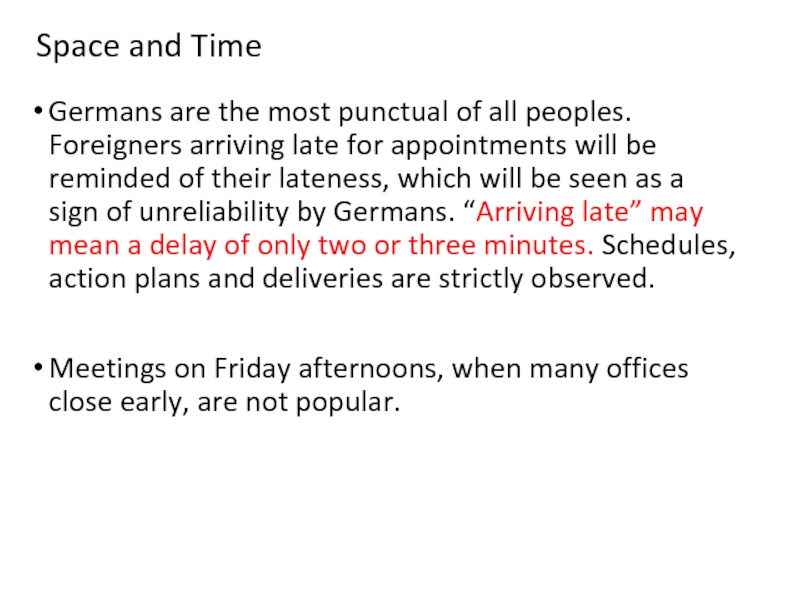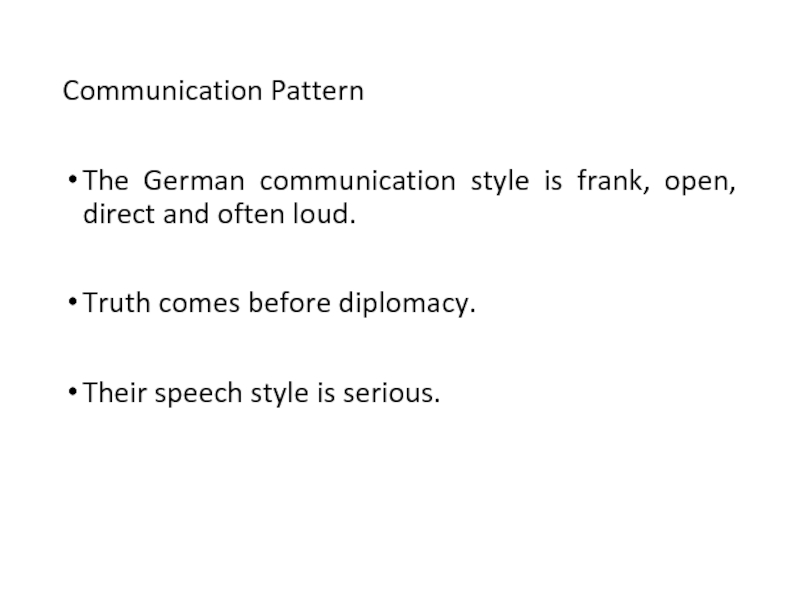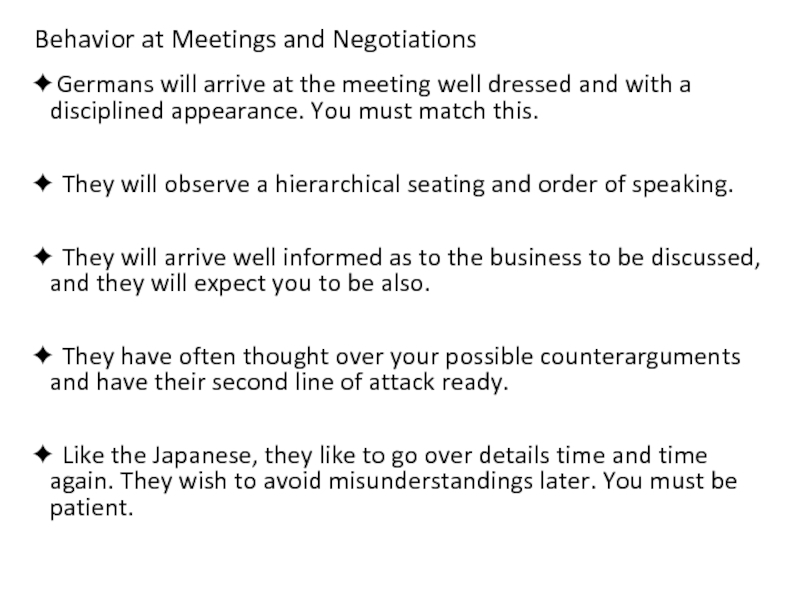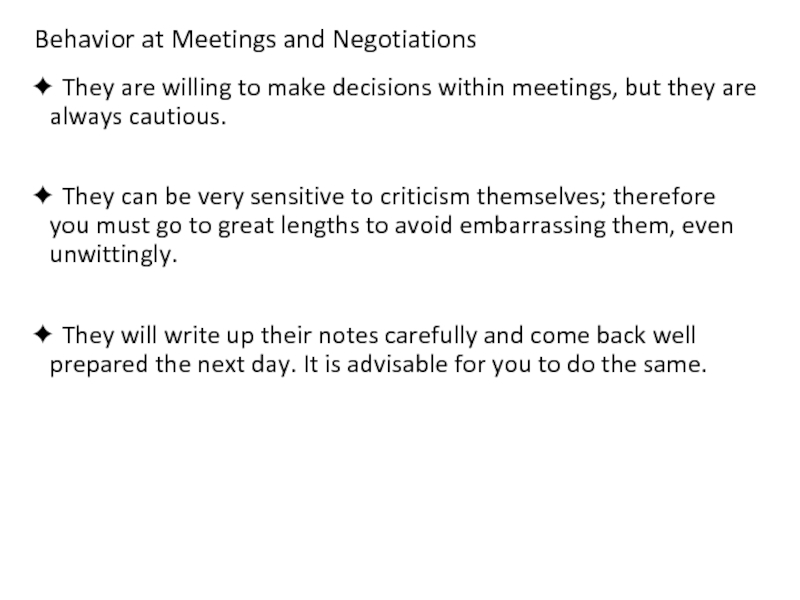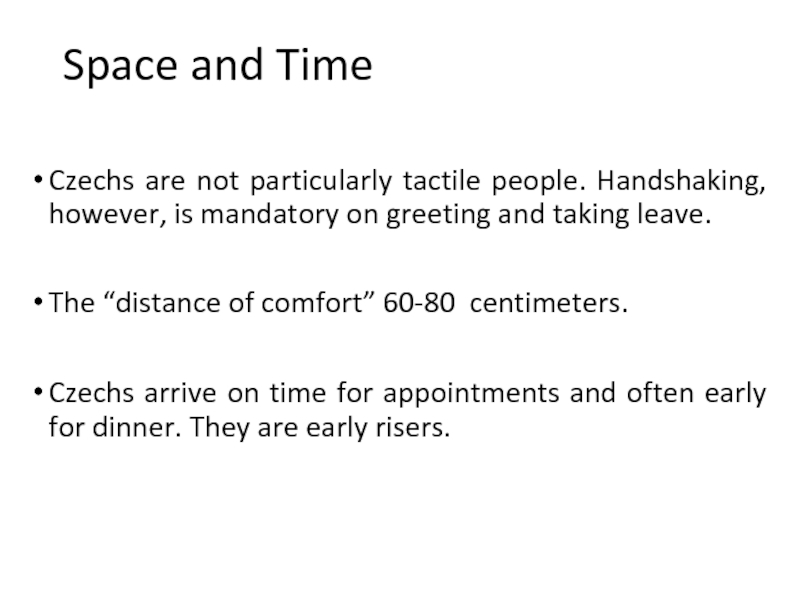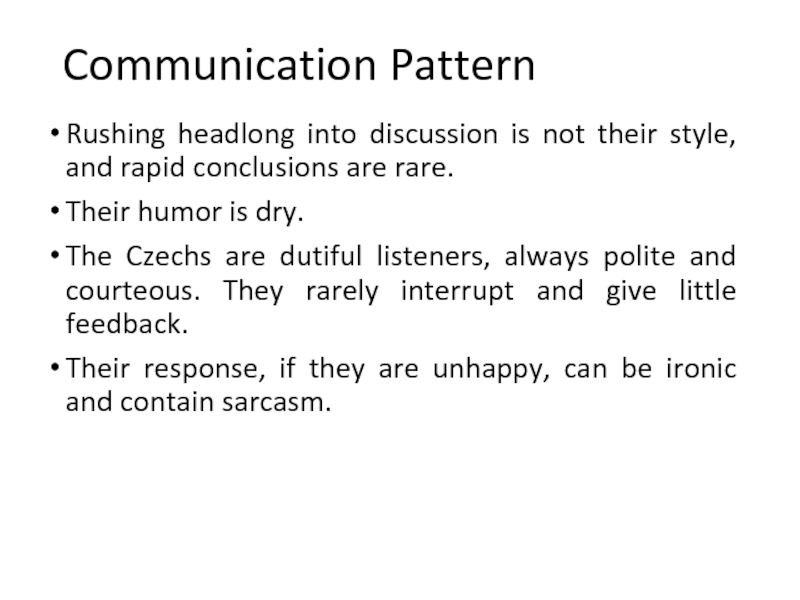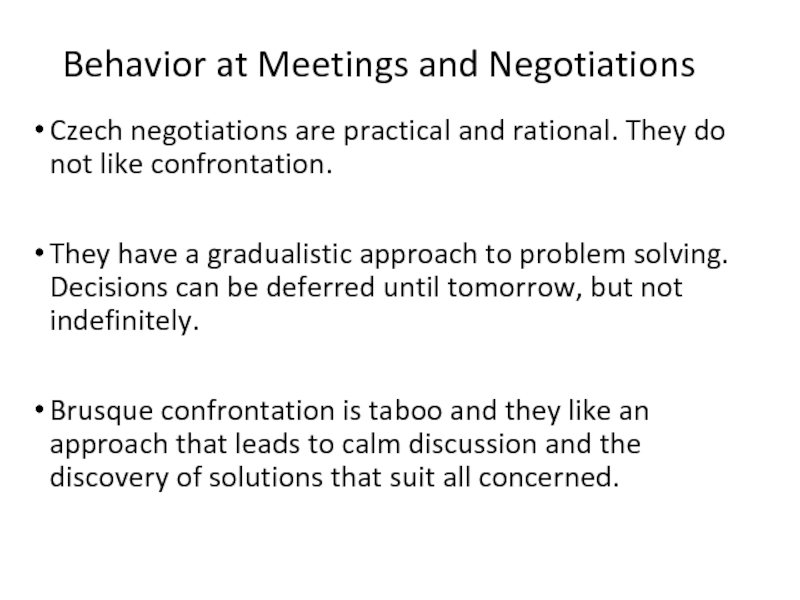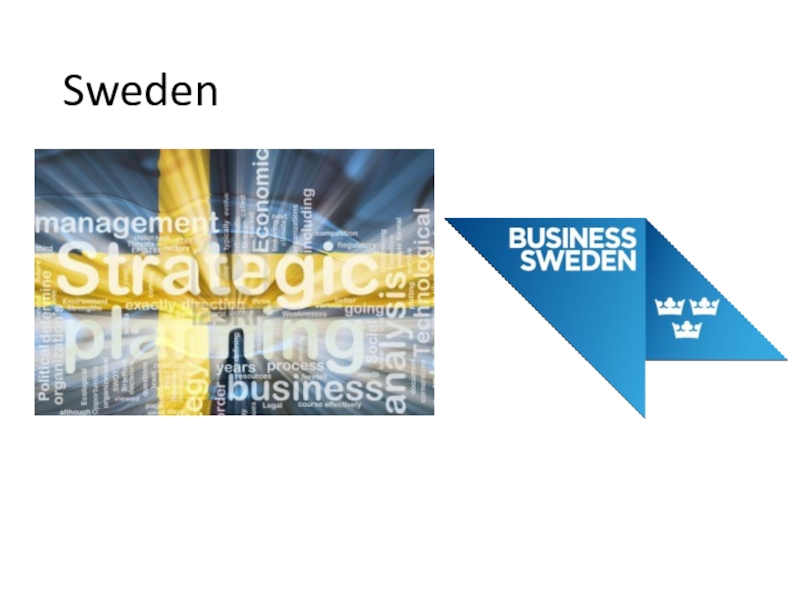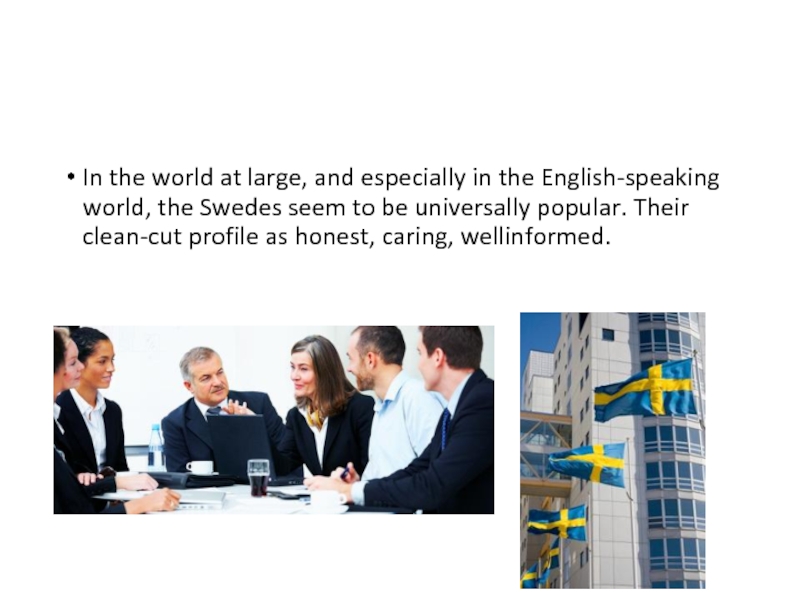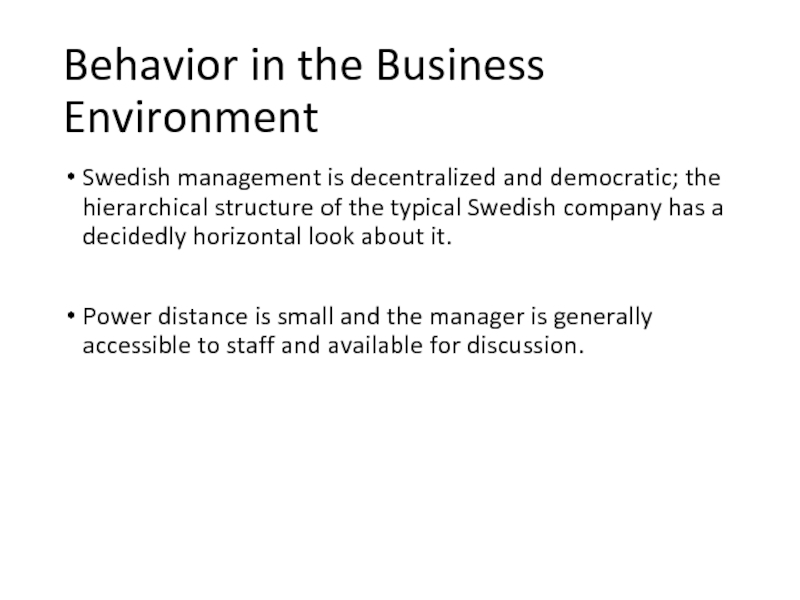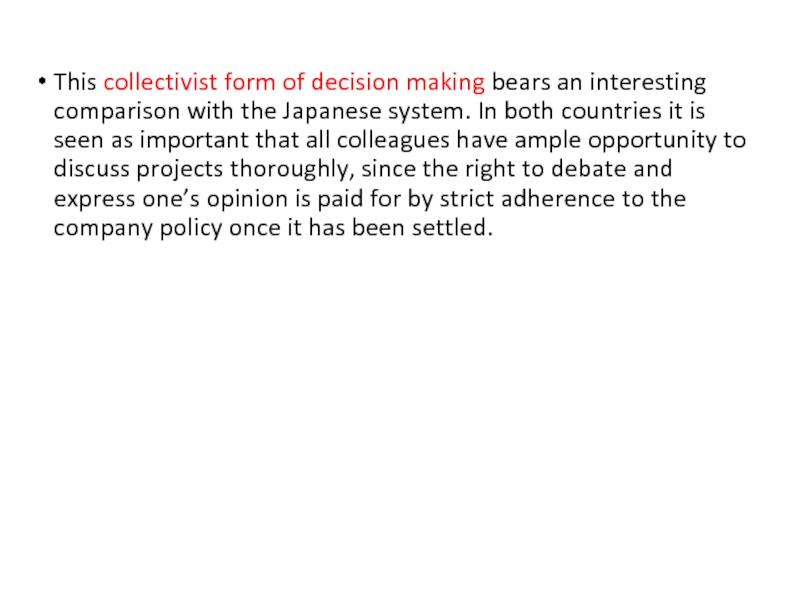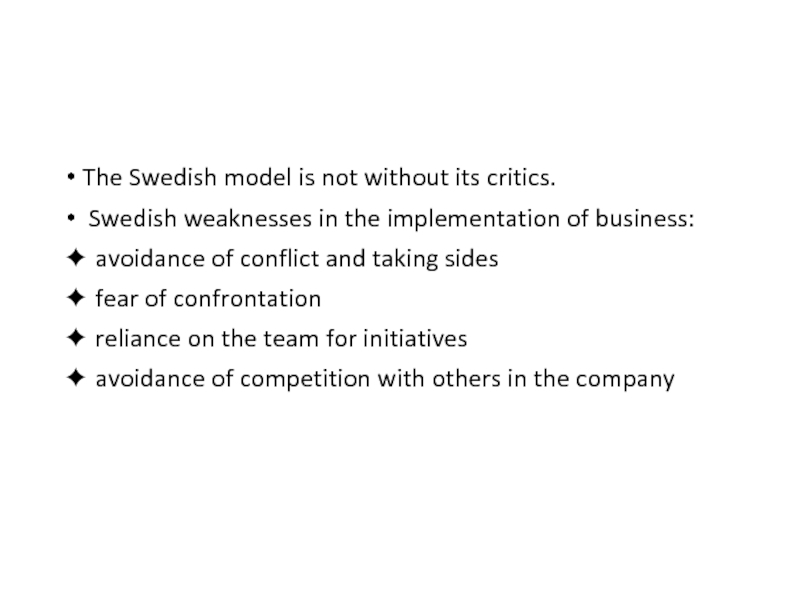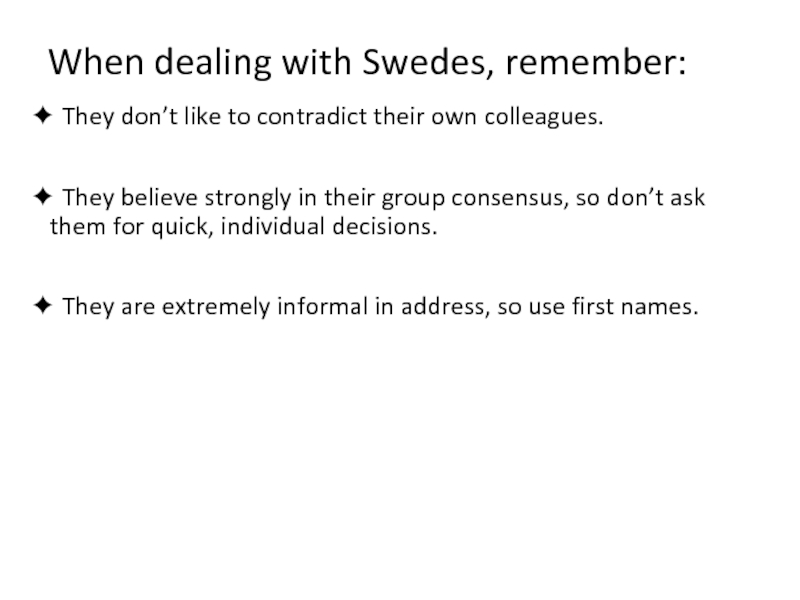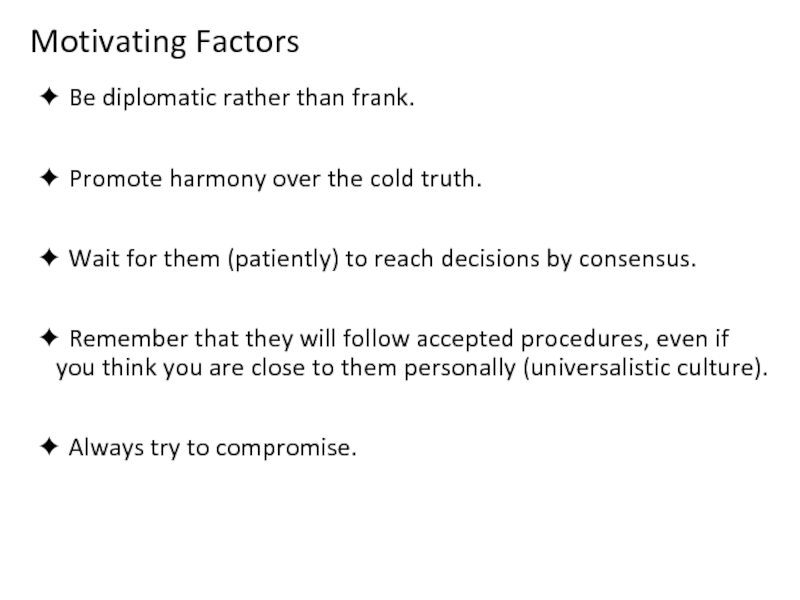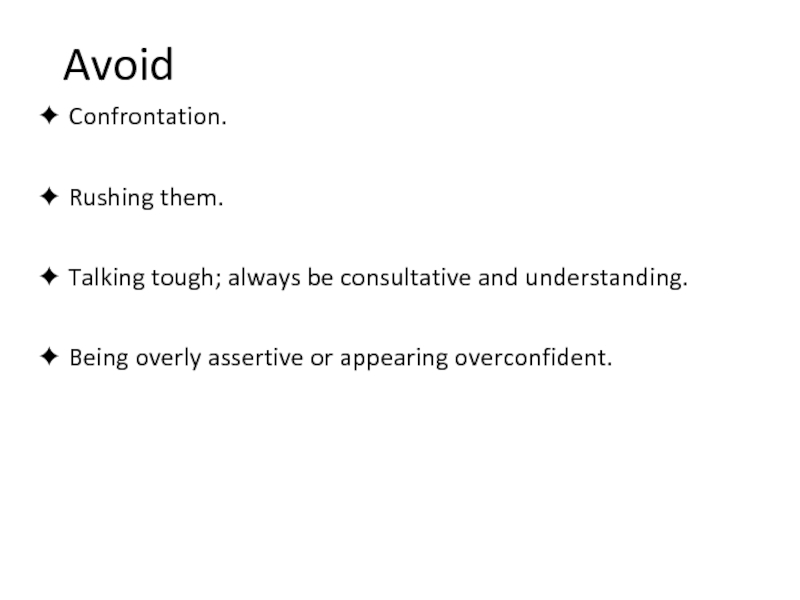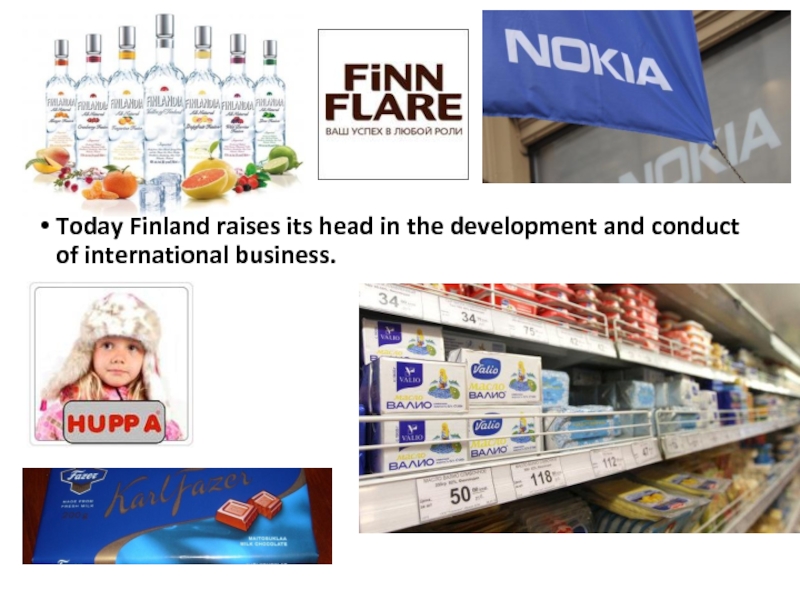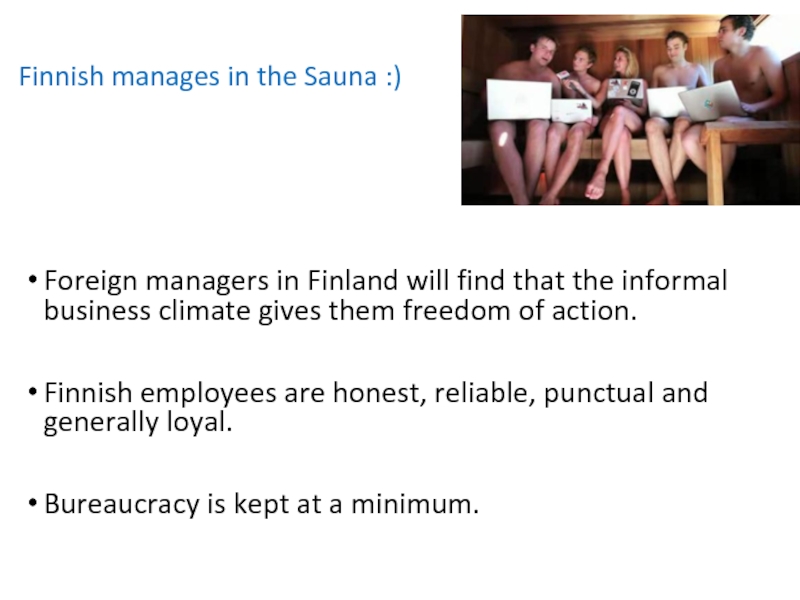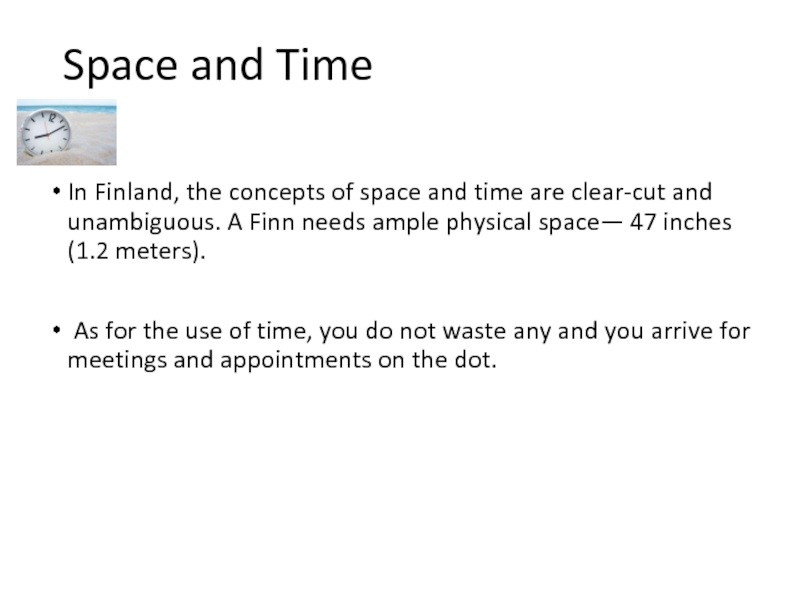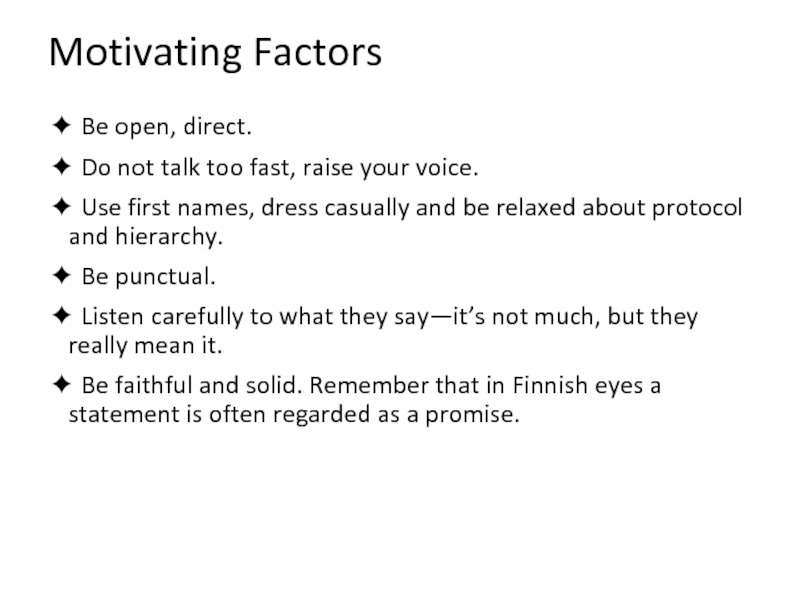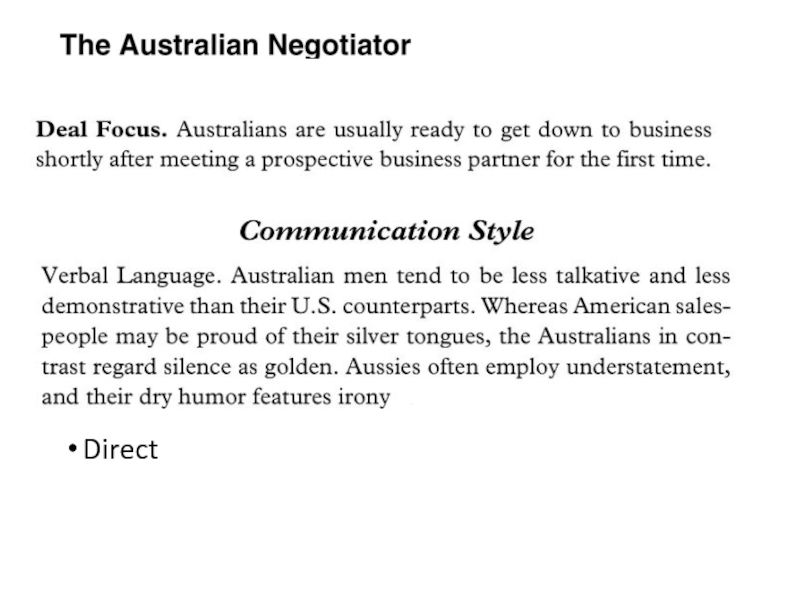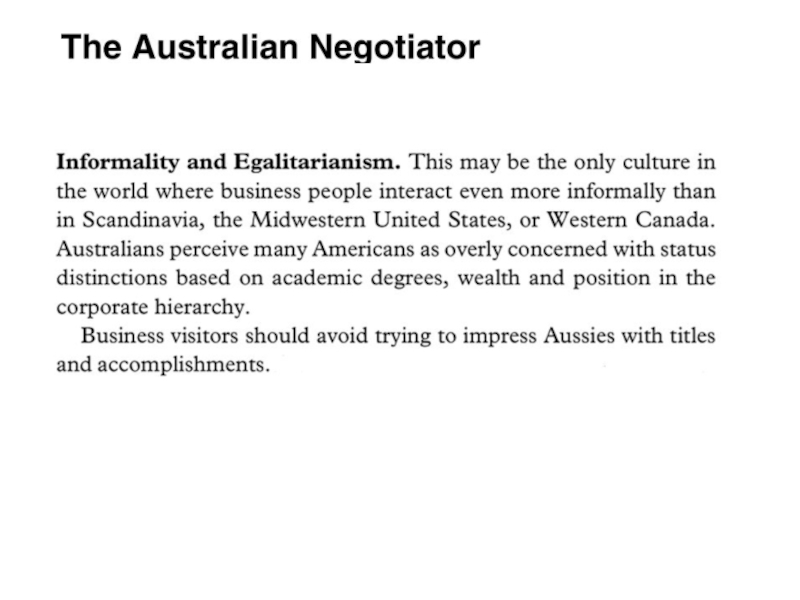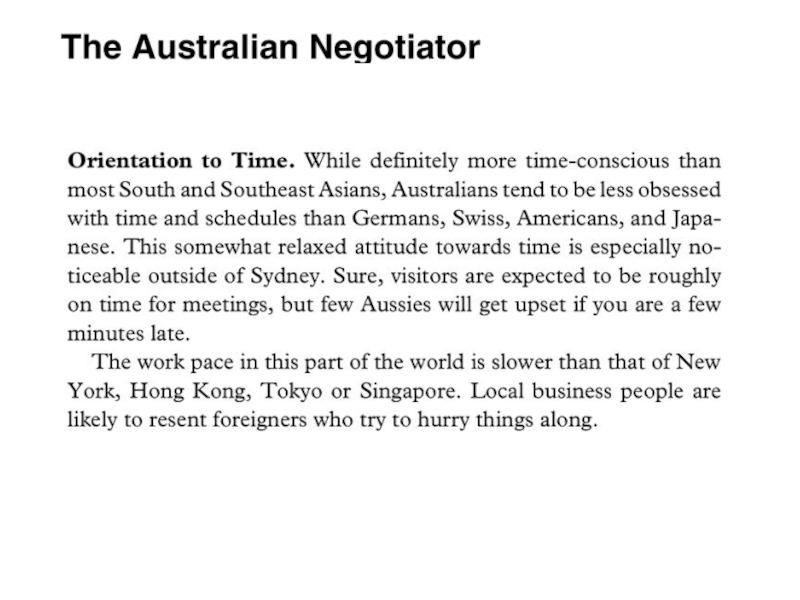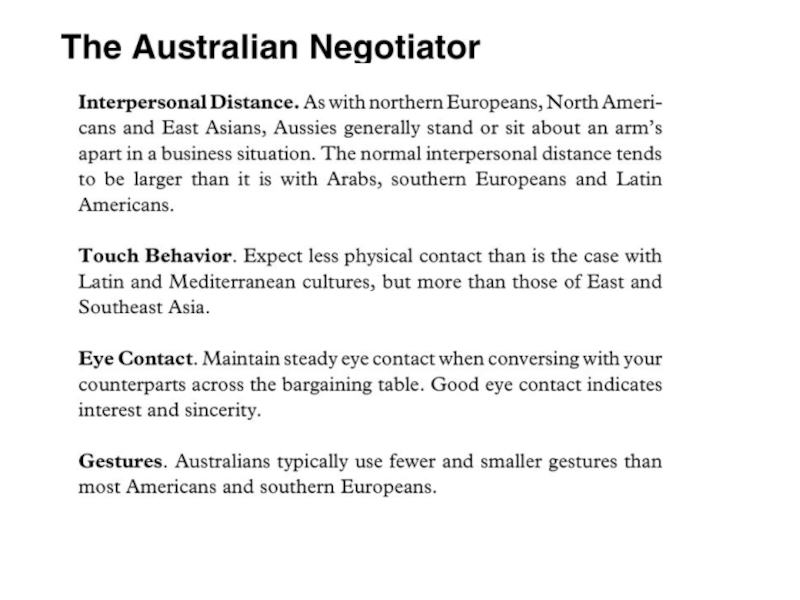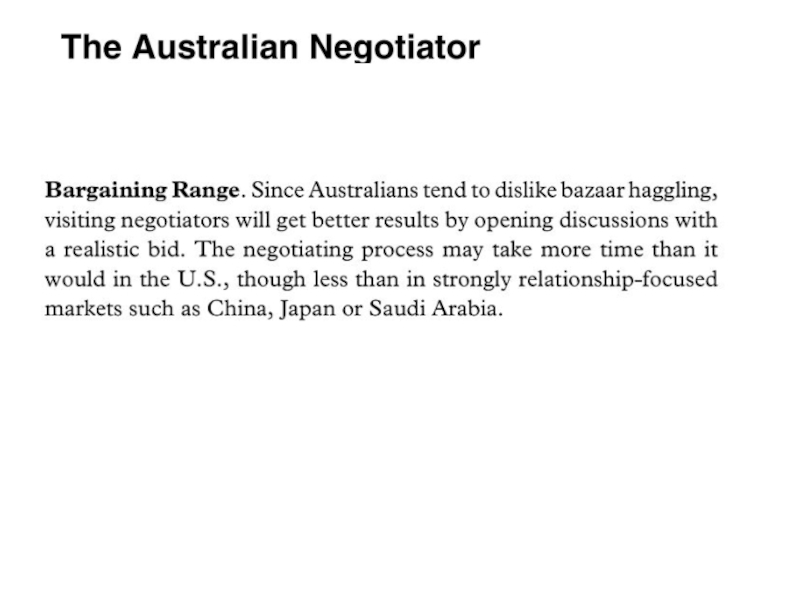- Главная
- Разное
- Дизайн
- Бизнес и предпринимательство
- Аналитика
- Образование
- Развлечения
- Красота и здоровье
- Финансы
- Государство
- Путешествия
- Спорт
- Недвижимость
- Армия
- Графика
- Культурология
- Еда и кулинария
- Лингвистика
- Английский язык
- Астрономия
- Алгебра
- Биология
- География
- Детские презентации
- Информатика
- История
- Литература
- Маркетинг
- Математика
- Медицина
- Менеджмент
- Музыка
- МХК
- Немецкий язык
- ОБЖ
- Обществознание
- Окружающий мир
- Педагогика
- Русский язык
- Технология
- Физика
- Философия
- Химия
- Шаблоны, картинки для презентаций
- Экология
- Экономика
- Юриспруденция
Cross-cultural business behavior презентация
Содержание
- 1. Cross-cultural business behavior
- 2. Patterns of cross-cultural business behavior
- 3. Group A: Relationship-Focused – Formal – Polychronic
- 4. Group B: Relationship-Focused – Formal – Monochronic
- 5. Group C: Relationship-Focused – Formal – Polychronic
- 6. Group D: Relationship-Focused – Formal – Polychronic
- 7. Group E: Moderately Deal-Focused – Formal –
- 8. Group F: Moderately Deal-Focused – Formal – Variably Monochronic –Reserved Examples: Baltic States
- 9. Negotiating in the Baltic states
- 10. Negotiating in the Baltic states
- 11. Negotiating in the Baltic states
- 12. Negotiating in the Baltic states
- 13. Negotiating in the Baltic states
- 15. Group G: Deal-Focused – Moderately Formal –
- 16. Germany
- 17. The basic characteristics of German business culture
- 18. Germans have great respect for possessions
- 19. Space and Time Germans are the most
- 20. Communication Pattern The German communication style is
- 21. Behavior at Meetings and Negotiations ✦Germans will
- 22. Behavior at Meetings and Negotiations ✦ They
- 23. The Czech Republic
- 24. Space and Time Czechs are not
- 25. Communication Pattern Rushing headlong into discussion
- 26. Behavior at Meetings and Negotiations Czech
- 27. Sweden
- 28. In the world at large, and
- 29. Behavior in the Business Environment Swedish management
- 30. This collectivist form of decision making bears
- 31. The Swedish model is not without
- 32. When dealing with Swedes, remember: ✦ They
- 33. Motivating Factors ✦ Be diplomatic rather than
- 34. Avoid ✦ Confrontation. ✦ Rushing
- 35. Finland
- 36. Today Finland raises its head in the development and conduct of international business.
- 37. Finnish manages in the Sauna :)
- 38. Space and Time In Finland, the
- 39. Motivating Factors ✦ Be open, direct.
- 40. Group H: Deal-Focused – Informal – Monochronic – Variably Expressive Examples: Australia, Canada, USA
- 41. Australia
- 42. Direct
Слайд 3Group A: Relationship-Focused – Formal – Polychronic – Emotionally Reserved
Examples:
India, Bangladesh, Vietnam, Thai, Malaysia, Indonesia, Philippines,
Слайд 4Group B: Relationship-Focused – Formal – Monochronic – Emotionally Reserved
Examples:
Japan, China, Korea, Singapore
Слайд 5Group C: Relationship-Focused – Formal – Polychronic – Emotionally Expressive
Examples:
Arabs, Egypt, Turkey, Greece, Brazil, Mexico
Слайд 6Group D: Relationship-Focused – Formal – Polychronic – Variably Expressive
Examples:
Russia, Poland, Romania, Slovakia
Слайд 7Group E: Moderately Deal-Focused – Formal – Variably Monochronic –Expressive
Examples:
Hungary, Spain, Italy, France
Слайд 8Group F: Moderately Deal-Focused – Formal – Variably Monochronic –Reserved
Examples:
Baltic States
Слайд 15Group G: Deal-Focused – Moderately Formal – Monochronic –Reserved
Examples: Denmark,
Norway, Britain, Sweden, Finland, Germany, Czech Republic
Слайд 17The basic characteristics of German business culture are:
Time. A monochronic
attitude toward the use of time; for example, a desire to complete one action chain before embarking on another;
Direct style of communication. A strong belief that Germans are honest, straightforward negotiators;
Hierarchy. The German boss is an extremely private person, normally sitting isolated in a large office behind a closed door. American and Scandinavian senior executives prefer an open door policy and like to wander round the corridors and chat with colleagues.
Direct style of communication. A strong belief that Germans are honest, straightforward negotiators;
Hierarchy. The German boss is an extremely private person, normally sitting isolated in a large office behind a closed door. American and Scandinavian senior executives prefer an open door policy and like to wander round the corridors and chat with colleagues.
Слайд 18
Germans have great respect for possessions and property. Solid buildings, furniture,
cars and good clothing are important for them and they will try to impress you with all these things.
Working life and private life are usually kept strictly separate. Privacy is important.
Working life and private life are usually kept strictly separate. Privacy is important.
Слайд 19Space and Time
Germans are the most punctual of all peoples. Foreigners
arriving late for appointments will be reminded of their lateness, which will be seen as a sign of unreliability by Germans. “Arriving late” may mean a delay of only two or three minutes. Schedules, action plans and deliveries are strictly observed.
Meetings on Friday afternoons, when many offices close early, are not popular.
Meetings on Friday afternoons, when many offices close early, are not popular.
Слайд 20Communication Pattern
The German communication style is frank, open, direct and often
loud.
Truth comes before diplomacy.
Their speech style is serious.
Truth comes before diplomacy.
Their speech style is serious.
Слайд 21Behavior at Meetings and Negotiations
✦Germans will arrive at the meeting well
dressed and with a disciplined appearance. You must match this.
✦ They will observe a hierarchical seating and order of speaking.
✦ They will arrive well informed as to the business to be discussed, and they will expect you to be also.
✦ They have often thought over your possible counterarguments and have their second line of attack ready.
✦ Like the Japanese, they like to go over details time and time again. They wish to avoid misunderstandings later. You must be patient.
✦ They will observe a hierarchical seating and order of speaking.
✦ They will arrive well informed as to the business to be discussed, and they will expect you to be also.
✦ They have often thought over your possible counterarguments and have their second line of attack ready.
✦ Like the Japanese, they like to go over details time and time again. They wish to avoid misunderstandings later. You must be patient.
Слайд 22Behavior at Meetings and Negotiations
✦ They are willing to make decisions
within meetings, but they are always cautious.
✦ They can be very sensitive to criticism themselves; therefore you must go to great lengths to avoid embarrassing them, even unwittingly.
✦ They will write up their notes carefully and come back well prepared the next day. It is advisable for you to do the same.
✦ They can be very sensitive to criticism themselves; therefore you must go to great lengths to avoid embarrassing them, even unwittingly.
✦ They will write up their notes carefully and come back well prepared the next day. It is advisable for you to do the same.
Слайд 24Space and Time
Czechs are not particularly tactile people. Handshaking, however, is
mandatory on greeting and taking leave.
The “distance of comfort” 60-80 centimeters.
Czechs arrive on time for appointments and often early for dinner. They are early risers.
The “distance of comfort” 60-80 centimeters.
Czechs arrive on time for appointments and often early for dinner. They are early risers.
Слайд 25Communication Pattern
Rushing headlong into discussion is not their style, and rapid
conclusions are rare.
Their humor is dry.
The Czechs are dutiful listeners, always polite and courteous. They rarely interrupt and give little feedback.
Their response, if they are unhappy, can be ironic and contain sarcasm.
Their humor is dry.
The Czechs are dutiful listeners, always polite and courteous. They rarely interrupt and give little feedback.
Their response, if they are unhappy, can be ironic and contain sarcasm.
Слайд 26Behavior at Meetings and Negotiations
Czech negotiations are practical and rational. They
do not like confrontation.
They have a gradualistic approach to problem solving. Decisions can be deferred until tomorrow, but not indefinitely.
Brusque confrontation is taboo and they like an approach that leads to calm discussion and the discovery of solutions that suit all concerned.
They have a gradualistic approach to problem solving. Decisions can be deferred until tomorrow, but not indefinitely.
Brusque confrontation is taboo and they like an approach that leads to calm discussion and the discovery of solutions that suit all concerned.
Слайд 28
In the world at large, and especially in the English-speaking world,
the Swedes seem to be universally popular. Their clean-cut profile as honest, caring, wellinformed.
Слайд 29Behavior in the Business Environment
Swedish management is decentralized and democratic; the
hierarchical structure of the typical Swedish company has a decidedly horizontal look about it.
Power distance is small and the manager is generally accessible to staff and available for discussion.
Power distance is small and the manager is generally accessible to staff and available for discussion.
Слайд 30This collectivist form of decision making bears an interesting comparison with
the Japanese system. In both countries it is seen as important that all colleagues have ample opportunity to discuss projects thoroughly, since the right to debate and express one’s opinion is paid for by strict adherence to the company policy once it has been settled.
Слайд 31
The Swedish model is not without its critics.
Swedish weaknesses
in the implementation of business:
✦ avoidance of conflict and taking sides
✦ fear of confrontation
✦ reliance on the team for initiatives
✦ avoidance of competition with others in the company
✦ avoidance of conflict and taking sides
✦ fear of confrontation
✦ reliance on the team for initiatives
✦ avoidance of competition with others in the company
Слайд 32When dealing with Swedes, remember:
✦ They don’t like to contradict their
own colleagues.
✦ They believe strongly in their group consensus, so don’t ask them for quick, individual decisions.
✦ They are extremely informal in address, so use first names.
✦ They believe strongly in their group consensus, so don’t ask them for quick, individual decisions.
✦ They are extremely informal in address, so use first names.
Слайд 33Motivating Factors
✦ Be diplomatic rather than frank.
✦ Promote harmony over the
cold truth.
✦ Wait for them (patiently) to reach decisions by consensus.
✦ Remember that they will follow accepted procedures, even if you think you are close to them personally (universalistic culture).
✦ Always try to compromise.
✦ Wait for them (patiently) to reach decisions by consensus.
✦ Remember that they will follow accepted procedures, even if you think you are close to them personally (universalistic culture).
✦ Always try to compromise.
Слайд 34Avoid
✦ Confrontation.
✦ Rushing them.
✦ Talking tough; always be consultative and understanding.
✦
Being overly assertive or appearing overconfident.
Слайд 37Finnish manages in the Sauna :)
Foreign managers in Finland will find
that the informal business climate gives them freedom of action.
Finnish employees are honest, reliable, punctual and generally loyal.
Bureaucracy is kept at a minimum.
Finnish employees are honest, reliable, punctual and generally loyal.
Bureaucracy is kept at a minimum.
Слайд 38Space and Time
In Finland, the concepts of space and time are
clear-cut and unambiguous. A Finn needs ample physical space— 47 inches (1.2 meters).
As for the use of time, you do not waste any and you arrive for meetings and appointments on the dot.
As for the use of time, you do not waste any and you arrive for meetings and appointments on the dot.
Слайд 39Motivating Factors
✦ Be open, direct.
✦ Do not talk too fast,
raise your voice.
✦ Use first names, dress casually and be relaxed about protocol and hierarchy.
✦ Be punctual.
✦ Listen carefully to what they say—it’s not much, but they really mean it.
✦ Be faithful and solid. Remember that in Finnish eyes a statement is often regarded as a promise.
✦ Use first names, dress casually and be relaxed about protocol and hierarchy.
✦ Be punctual.
✦ Listen carefully to what they say—it’s not much, but they really mean it.
✦ Be faithful and solid. Remember that in Finnish eyes a statement is often regarded as a promise.
Слайд 40Group H: Deal-Focused – Informal – Monochronic – Variably Expressive
Examples: Australia,
Canada, USA

